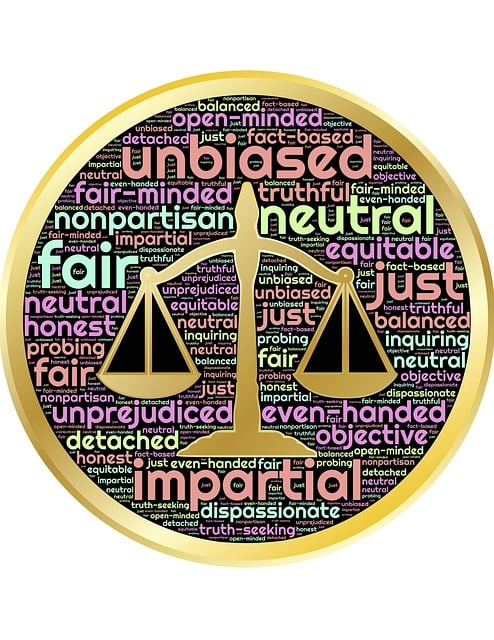“In the intricate web of criminal law, co-ownership property disputes stand as a prevalent and complex challenge. This article explores the ins and outs of these legal quagmires, where shared assets and differing opinions collide. We’ll dissect the legal framework governing co-owners’ rights and obligations, uncover common triggers for disagreements, and delve into strategic advocacy methods. Understanding these aspects is crucial in navigating the available legal options for resolving such disputes, ensuring fairness and justice for all parties involved.”
- Understanding Co-Ownership Property Disputes: A Common Criminal Law Case
- Legal Framework: The Rights and Obligations of Co-Owners
- When Disagreements Arise: Potential Issues and Triggers
- Available Legal Options for Resolving Co-Ownership Conflicts
- Strategies for Effective Advocacy in Co-Ownership Property Dispute Cases
Understanding Co-Ownership Property Disputes: A Common Criminal Law Case

Legal Framework: The Rights and Obligations of Co-Owners

In the context of co-ownership property disputes, understanding the legal framework is paramount. When individuals jointly own property, whether it’s real estate or personal belongings, each co-owner possesses certain rights and bears obligations. The law recognizes their shared interest in the asset, ensuring fairness and equality among all parties involved. In case of disagreements or conflicts, such as disputes over possession, sale, or financial contributions, the legal system provides several avenues for resolution.
Co-owners have the right to peaceful enjoyment and use of the property. They are also required to act in good faith, maintain transparency, and contribute equitably towards expenses and maintenance. When differences arise, exploring legal options is crucial. Whether through mediation, arbitration, or litigation, seeking professional guidance in general criminal defense can help navigate high-stakes cases, ensuring that each co-owner’s rights are protected for his clients.
When Disagreements Arise: Potential Issues and Triggers

When disagreements arise regarding co-ownership property disputes, it’s essential to understand potential triggers that can escalate issues. These conflicts often surface during all stages of the investigative and enforcement process, from initial negotiations to jury trials. Whether it’s a dispute between family members, business partners, or neighbors, each party may have valid claims and concerns.
Various factors can ignite these disputes, including differing interpretations of property rights, alleged breaches of fiduciary duty, or misunderstandings about maintenance responsibilities. In some cases, emotional attachment to the property can also play a significant role, especially when it holds sentimental value or is located within philanthropic and political communities. Exploring legal options, such as mediation or arbitration, can help resolve these conflicts amicably before they escalate into more extensive and costly litigation.
Available Legal Options for Resolving Co-Ownership Conflicts

In the event of a co-ownership property dispute, individuals involved have several legal options to resolve their differences. The first step is often consultation with an experienced attorney who can provide guidance tailored to their specific situation. Mediation, a collaborative process where parties work together with a neutral third party, is a common and effective method to negotiate a settlement without going to court. This approach allows for a mutually agreeable solution, preserving the relationship between co-owners.
For more complex cases, particularly involving white collar defense or when navigating all stages of the investigative and enforcement process, litigation may be required. Court proceedings offer a structured avenue to present evidence and argue respective business interests. Ultimately, the chosen legal option depends on factors such as the complexity of the dispute, the relationship between co-owners, and their willingness to cooperate.
Strategies for Effective Advocacy in Co-Ownership Property Dispute Cases

In Co-Ownership Property Dispute Cases, effective advocacy is key to achieving favorable outcomes. One strategic approach involves thoroughly investigating and understanding the specific legal options available under co-ownership laws. This includes examining the nature of the dispute—whether it’s over distribution of proceeds, exclusive use rights, or partition of the property itself. A comprehensive knowledge of these laws enables attorneys to craft compelling arguments tailored to their clients’ unique circumstances.
Moreover, mastering evidence presentation and witness examination is crucial. Presenting clear, organized, and persuasive evidence can sway judges or juries in high-stakes cases. Skilled advocates also prepare for potential jury trials by understanding the emotional aspects of such disputes and tailoring their communication style accordingly. This blend of legal expertise and strategic communication ensures robust representation, especially in general criminal defense scenarios where clarity and conviction are paramount.
Co-ownership property disputes, while complex, are navigable through understanding the legal framework and available options. By recognizing potential triggers and employing effective advocacy strategies, those involved can resolve these conflicts amicably or through legal proceedings. Ultimately, the goal is to protect individual rights and obligations, ensuring a fair outcome for all parties—a testament to the importance of clear communication and adherence to legal guidelines in co-ownership property disputes. To further navigate these complex issues, exploring specific legal options and strategies is key, enabling individuals to make informed decisions regarding their co-owned properties.






